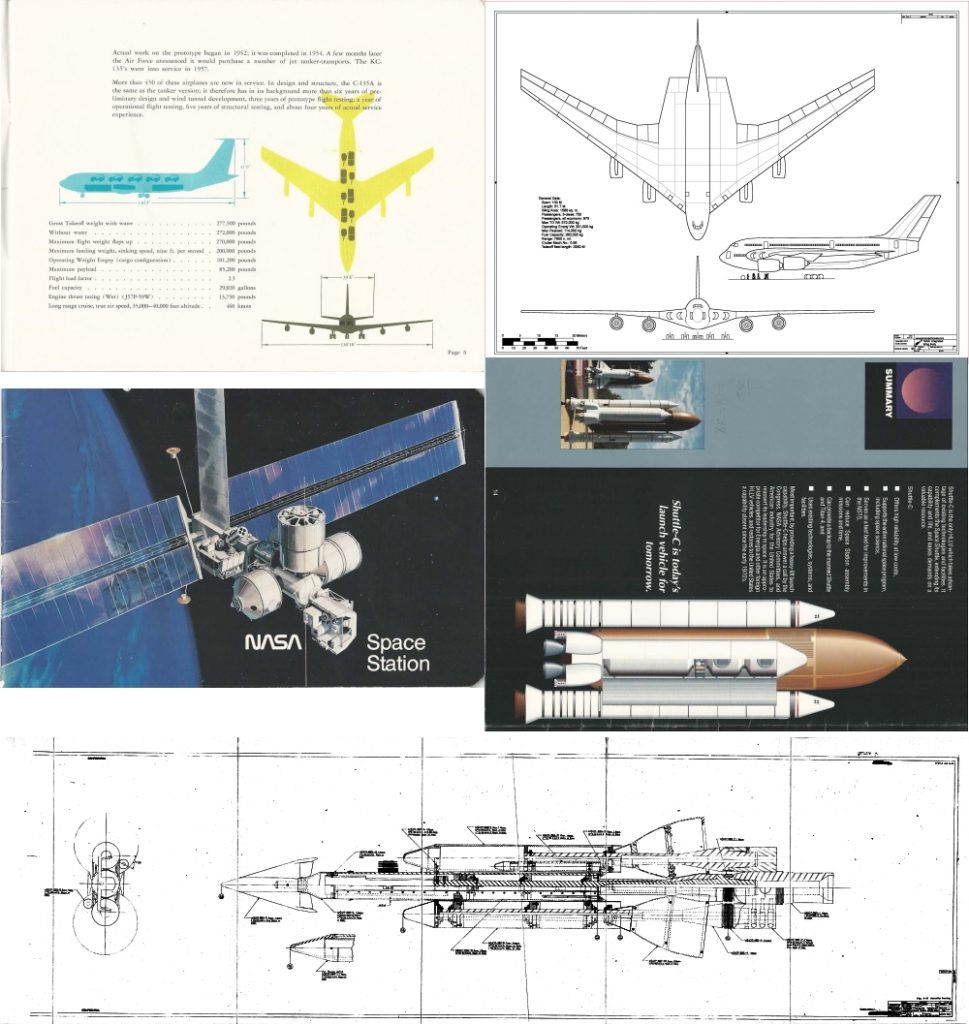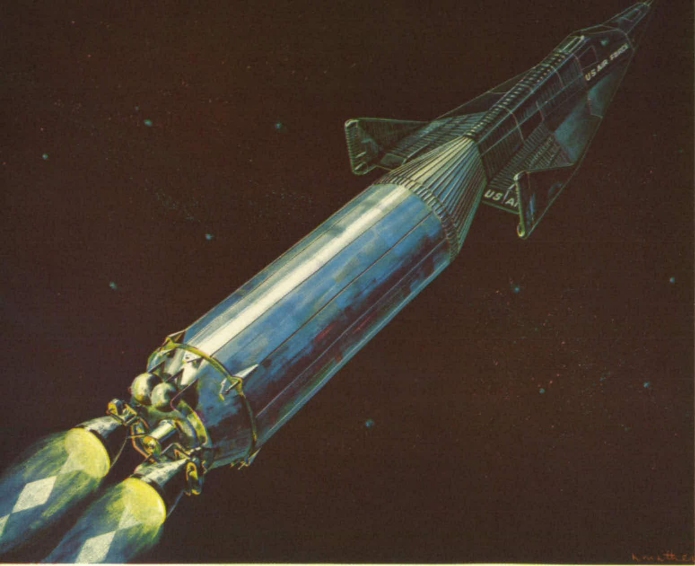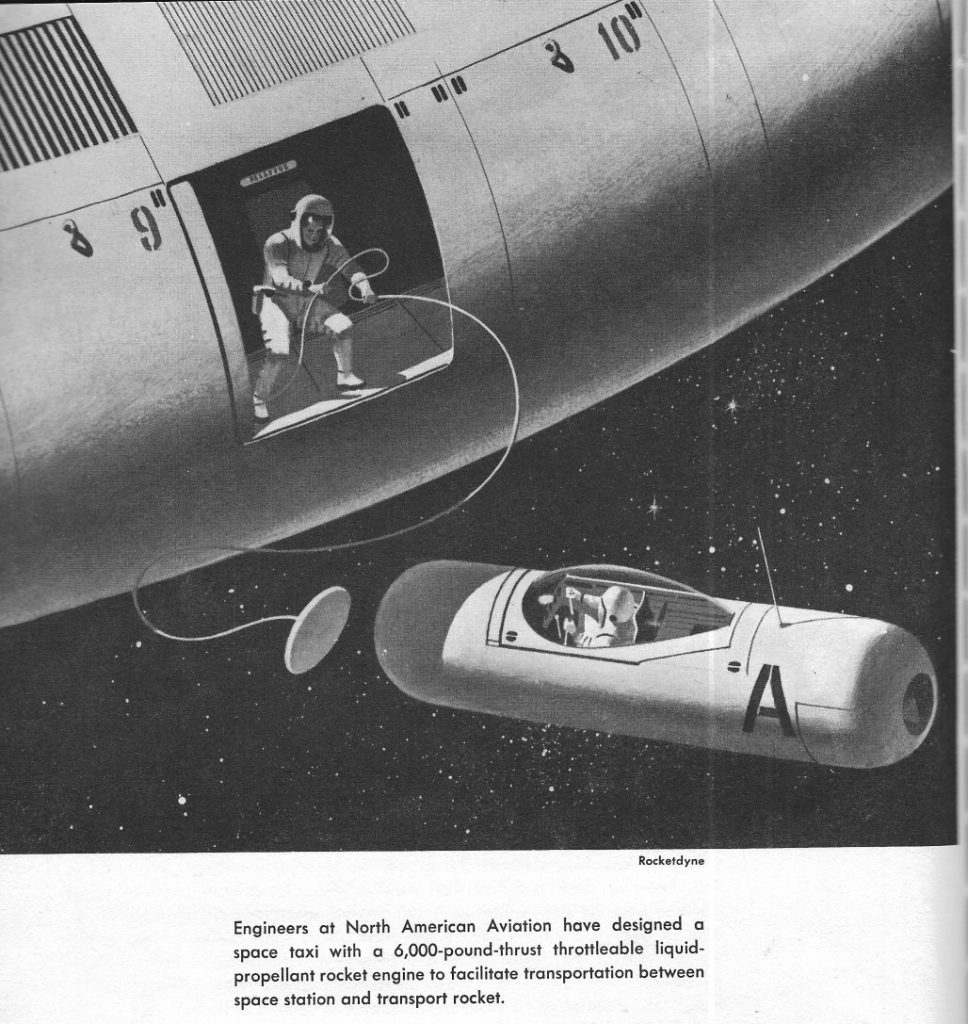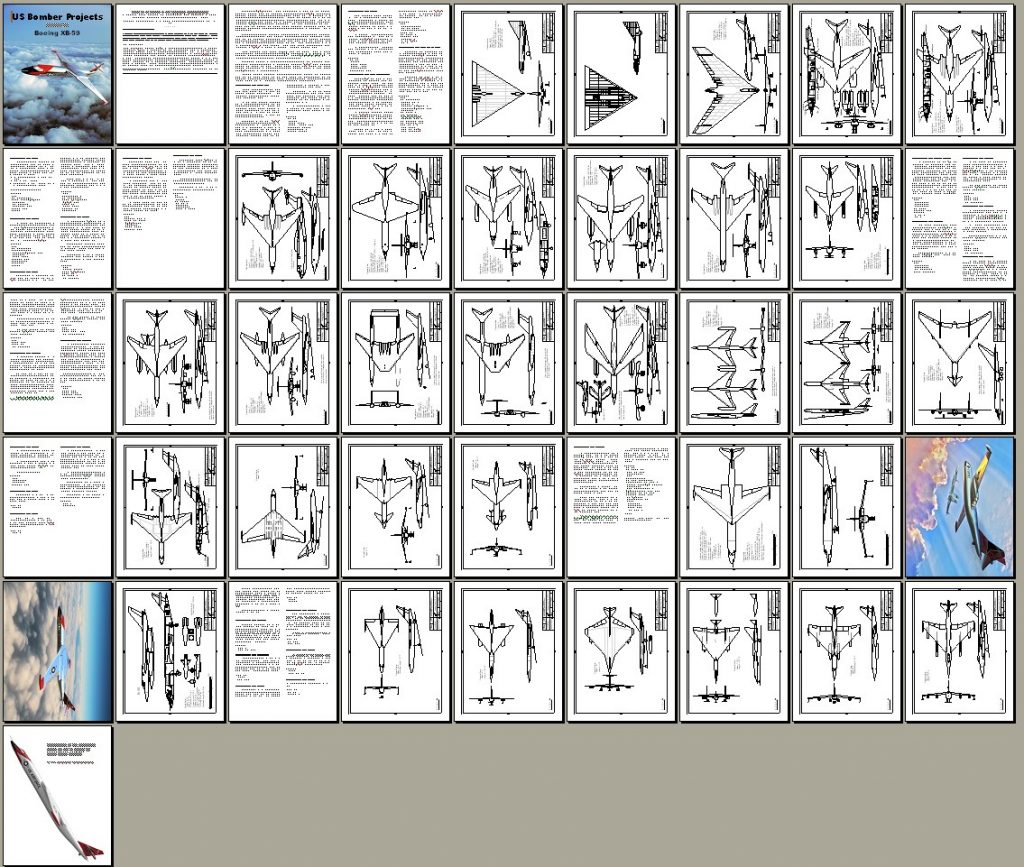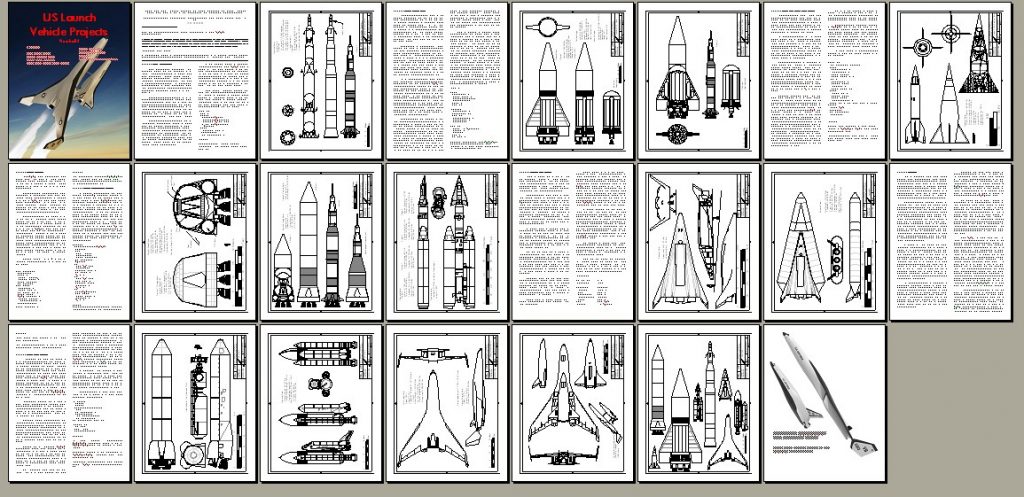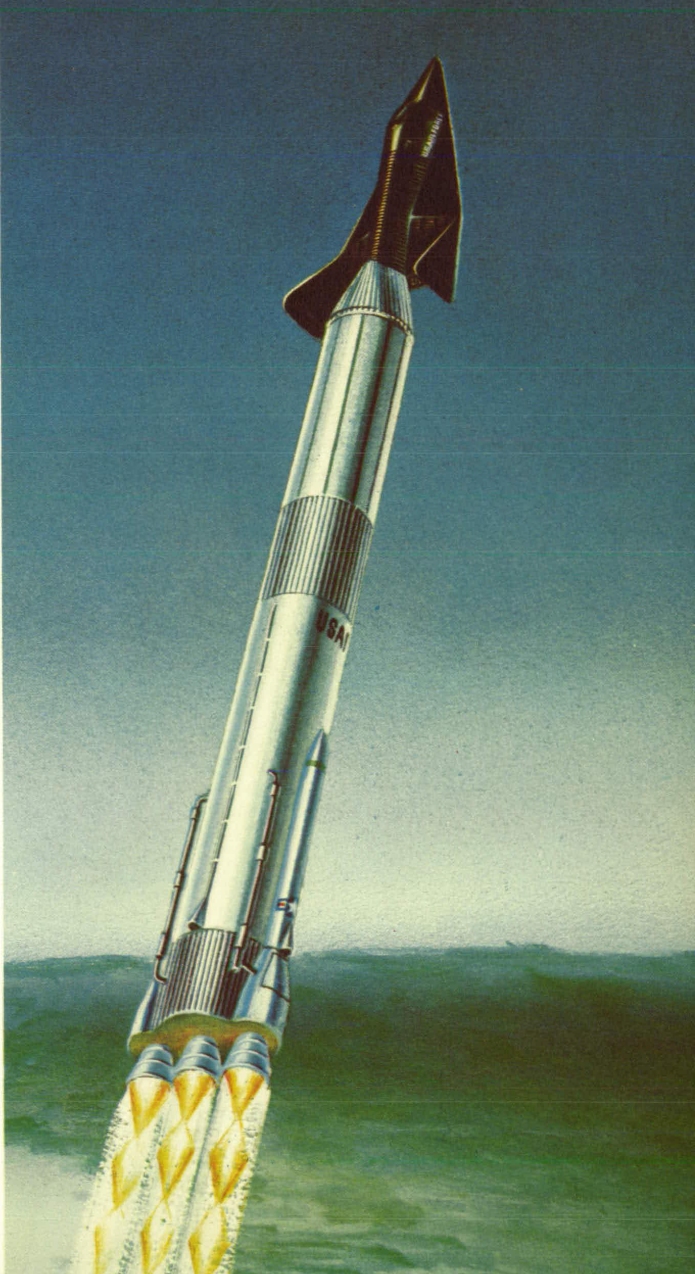Now available: two new US Aerospace Projects issues. Cover art was provided by Rob Parthoens, www.baroba.be
US Bomber Projects #20:XB-59 Special
US Bomber Projects #20 is now available (see HERE for the entire series). Issue #20 collects all the previously published articles and diagrams of the XB-59 antecedent designs and updates them. Additionally, more antecedent designs have been included as well as several designs that followed along after the XB-59. The biggest USXP publication yet!
USBP 20 includes twenty nine unique aircraft concepts (the usual issue of USXP has eight designs) from Boeing Models 484 and 701 showing how Boeing evolved the XB-59, their competitor to the Convair B-58 “Hustler.” Beginning with subsonic flying wings, the concept saw concepts both conventional and unconventional before eventually settling on Model 701-299-1, the final XB-59 design. This issue includes a half dozen Model 701 designs that followed along after the cancellation of the XB-59 program.

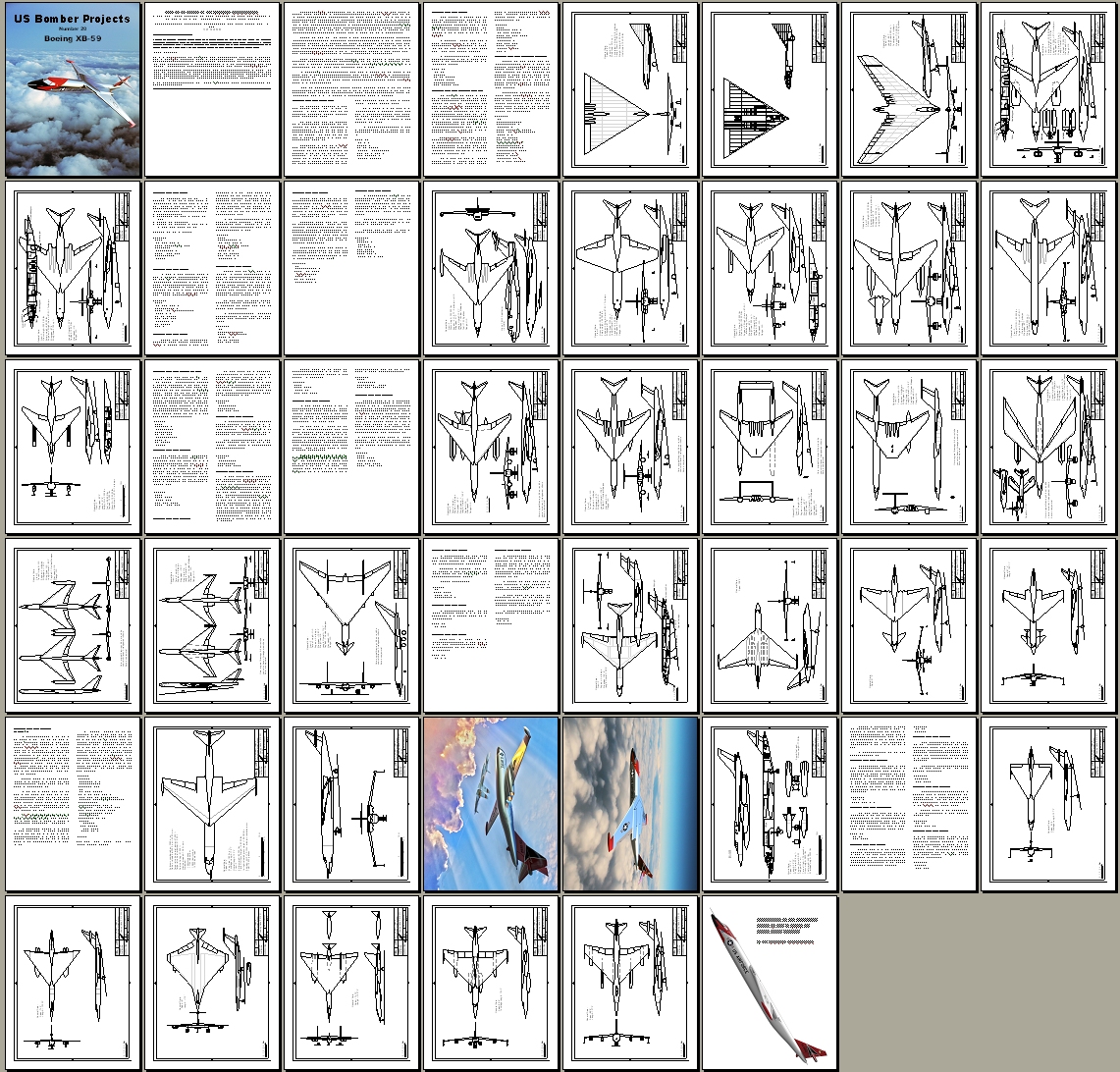
USBP #20 can be downloaded as a PDF file for only $8:
——–
US Launch Vehicle Projects #04
US Launch Vehicle Projects #04 is now available (see HERE for the entire series). Issue #04 includes:
- Space Carrier Vehicle: A US Army lunar rocket with 8 F-1 engines
- Convair Reusable Helios: A stage-and-a-half monster with a gas core nuclear engine
- Boeing Model 896-111: A 1980’s two stage transatmospheric vehicle
- Project RAND Satellite Rocket 3-Stage: A 1947 satellite launcher
- Convair Saturn V-R: An idea on how to make a fully reusable Saturn V first stage
- Lockheed STAR Clipper: A 1968 stage-and-a-half lifting body Space Shuttle
- Shuttle-C: The Shuttle derived vehicle design that came closest to being built
- Titan III Growth/156-inch boosters: A more powerful version of the Titan III for Dyna Soar launch

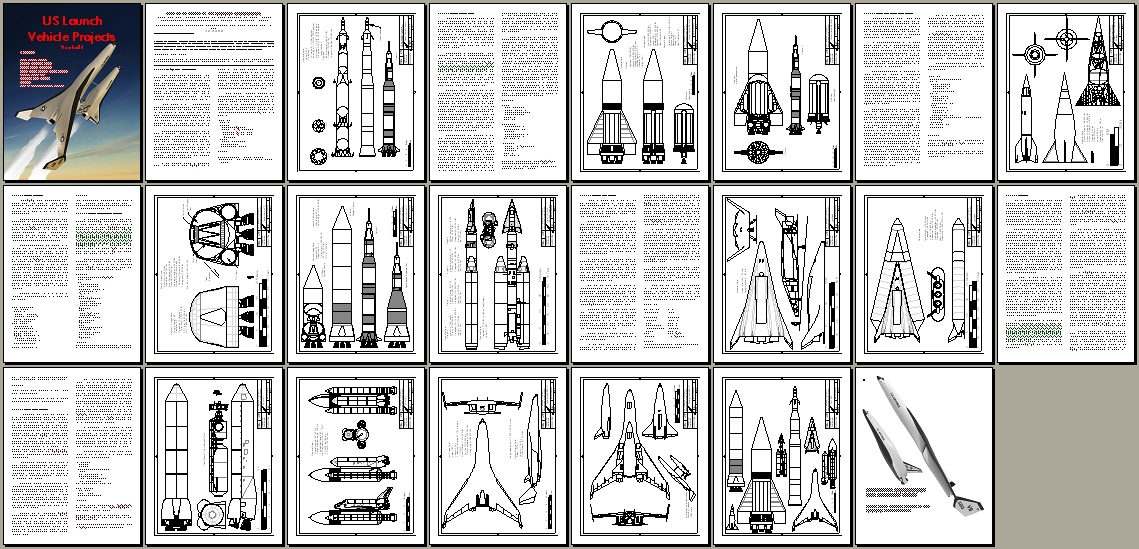
USLP #04 can be downloaded as a PDF file for only $4:
——–
Also recommended, these previous Specials:
US Bomber Projects #14: System 464L Special
USBP#14 brings together the competitors to Weapon System 464L, the first major effort in the Dyna Soar program. These designs were previously shown individually in prior issues of USBP; here they are brought together, with some updates, as well as a few extra diagrams and a section of diagrams formatted for 11X17 printing. This issue includes info and diagrams of the Lockheed, Republic, General Dynamics, McDonnell, Boeing, Douglas, Northrop, North American and Martin-Bell entries as well as their various booster systems. Also included are detailed diagrams of the ultimate Dyna Soar design, the 2050E.
USBP#14 can be purchased for downloading for the low, low price of $6.

US Bomber Projects #16: The B-52 Evolution Special
Boeing Model 444 A: A late war turboprop heavy bomber
Boeing Model 461: An early postwar turboprop heavy bomber
Boeing Model 462: A large six-turboprop ancestor of the B-52
Boeing Model 462-5: A six-turboprop B-52 ancestor
Boeing Model 464-17: 1946 four-turboprop strategic bomber, a step toward the B-52
Boeing Model 464-18: a reduced-size version of the 464-17 turboprop strategic bomber
Boeing Model 464-25: a modification of the 464-17 turboprop bomber with slightly swept wings, among other changes
Boeing Model 464-27: a slightly-swept turboprop B-52 progenitor
Boeing Model 464-33-0: A turboprop B-52 predecessor
Boeing Model 464-34-3: A turboprop B-52 predecessor
Boeing Model 464-40: The first all-jet-powered design in the quest for the B-52
Boeing Model 464-40: The first all-jet-powered design in the quest for the B-52
Boeing Model 464-046: A six-engined B-52 predecessor
Boeing Model 464-49: The penultimate major design in the development of the B-52
Fairchild M-121:A highly unconventional canard-biplane
Convair B-60: A swept-wing turboprop-powered derivative of the B-36
Douglas Model 1211-J: An elegant turboprop alternative to the B-52
With additional diagrams of the B-47, XB-52 and B-52B
USBP#16 can be purchased for downloading for the low, low price of $6.

